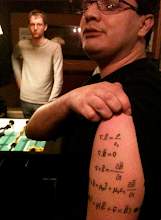Transport of fermions, particles with half-integer spin, is central to many fields of physics. Electron transport runs modern technology, defining states of matter such as superconductors and insulators, and electron spin is being explored as a new carrier of information1. Neutrino transport energizes supernova explosions following the collapse of a dying star2, and hydrodynamic transport of the quark–gluon plasma governed the expansion of the early Universe3. However, our understanding of non-equilibrium dynamics in such strongly interacting fermionic matter is still limited. Ultracold gases of fermionic atoms realize a pristine model for such systems and can be studied in real time with the precision of atomic physics4. Even above the superfluid transition, such gases flow as an almost perfect fluid with very low viscosity when interactions are tuned to a scattering resonance3, 5, 6, 7, 8. In this hydrodynamic regime, collective density excitations are weakly damped6, 7. Here we experimentally investigate spin excitations in a Fermi gas of 6Li atoms, finding that, in contrast, they are maximally damped. A spin current is induced by spatially separating two spin components and observing their evolution in an external trapping potential. We demonstrate that interactions can be strong enough to reverse spin currents, with components of opposite spin reflecting off each other. Near equilibrium, we obtain the spin drag coefficient, the spin diffusivity and the spin susceptibility as a function of temperature on resonance and show that they obey universal laws at high temperatures. In the degenerate regime, the spin diffusivity approaches a value set by
 /m, the quantum limit of diffusion, where
/m, the quantum limit of diffusion, where  /m is Planck’s constant divided by 2π and m the atomic mass. For repulsive interactions, our measurements seem to exclude a metastable ferromagnetic state9, 10, 11.
/m is Planck’s constant divided by 2π and m the atomic mass. For repulsive interactions, our measurements seem to exclude a metastable ferromagnetic state9, 10, 11.
No comments:
Post a Comment